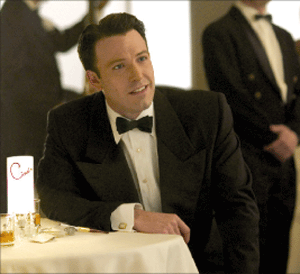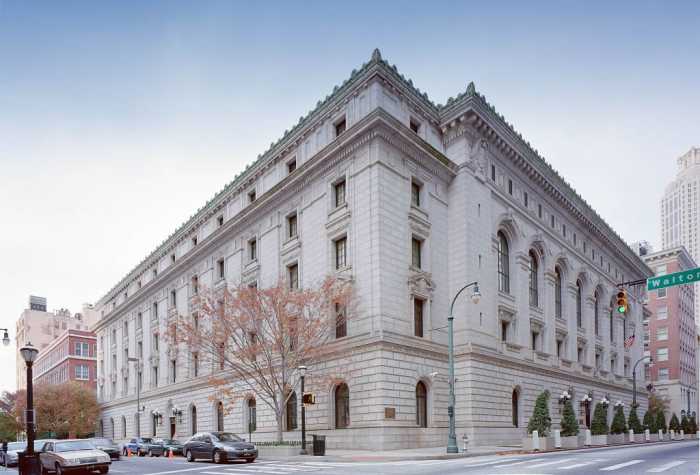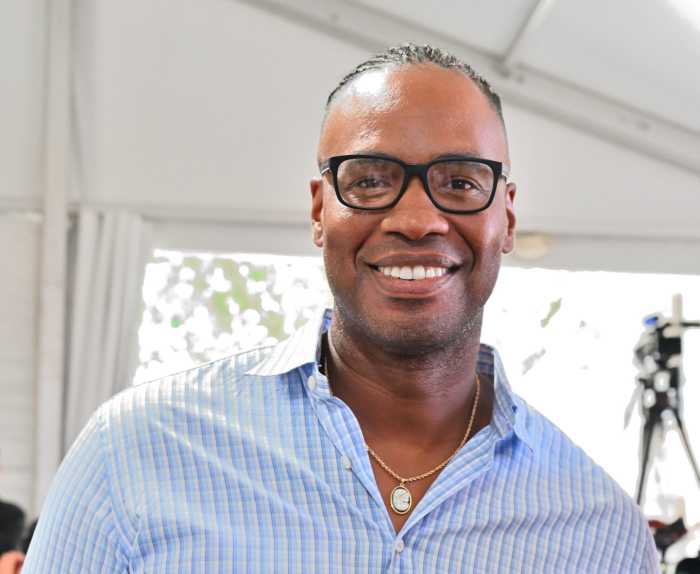Great acting can’t save “Hollywoodland”
Television is an amazing thing. In George Clooney’s excellent picture “Good Night and Good Luck,” the character of Edward R. Murrow, as portrayed by David Strathairn, delivers a speech on the potential of the medium to enlighten and educate the masses, and he has a point. Television has great potential, as we’ve seen through its journalism and occasionally its programming. However, television isn’t cinema, a point that it is important not to forget.
Thus is the downfall of Allen Coulter’s new film “Hollywoodland,” a watered-down—or waterlogged—“Chinatown” knockoff featuring Academy Award winners Adrien Brody and Ben Affleck. The film, a neo-neo-noir, is based around the true story of actor George Reeves (Affleck) who played Superman on the popular ‘50s TV show before being found dead in his apartment with a bullet in his brain. Brody plays Louis Simo, a P.I. investigating Reeves’ death out of what appears to be nothing more than a desire to drive the story forward.
Along the way the film treats the usual ins and outs of Hollywood as depicted in Roman Polanski’s “Chinatown,” such as the trysts of powerful and wealthy, the fleeting nature of fame, and the potential for things to stay buried in the city’s notoriously corrupt police department. It does so, however, half-heartedly and with a gait that will leave you spinning, as it burns the candle on both ends with Reeves’ story taking place simultaneous to Simo’s investigation.
Coulter, an excellent director on the television show “The Sopranos,” attempts to bring that show’s feeling of slick grime to bear on screen, but instead ends up exposing the worst of his television habits. As in television, color and mood are substituted for concrete plot development, cheap editing put in place of following the story of the protagonist. In television, such effects are a hallmark of Coulter’s style; a touch reminiscent of film, that has made HBO so successful. However, these effects are only shortcuts because the real effects of film cannot be implemented on television, as much as a TV show could not be effectively performed as theater. Faced with “the real thing” of linear feature storytelling, Coulter would rather delve into his cheap bag of tricks and give us a protracted episode as opposed to a film.
The film is not without its merit. Coulter is an excellent director of actors, and what a cast he has to work with. Adrien Brody seems believable as a P.I. if not entirely underwritten as a character, mostly on the basis of having a nose that seems to logically extend into other people’s business. The always exceptional Diane Lane, as the wife of a powerful Hollywood executive, allows herself, briefly, to be old, a brave thing for an actress of her age to do. Bob Hoskins seems to have fun as her husband in a small role.
And Affleck? Amazingly, he flexes his acting chops. As a reluctant Superman, Affleck seems a natural for the part with his bluster and his schoolboy smile. Often he seems to upstage even Brody for short stretches. Though he ultimately gets trapped back in his Hollywood persona, it was nice to see him in a role that’s finally well suited for him after a string of annoying hunk-lings.
The story never really pans out in “Hollywoodland,” which eventually attempts a Rashomon-like twist to make itself work. When it comes down to it, there’s not enough reason to care about the characters in the film let alone the film itself. In “Chinatown,” J.J. Gittes is a detective whom we identify with because his mystery is trying to find out how Los Angeles became so sordid in the first place. Since “Hollywoodland” lacks the symbolic or emotional depth of that film, it attempts to give its protagonist Simo a B-story about his relationship with his son—and surprisingly amicable ex-wife—in order to give him depth and empathy as a character. Instead that story only diverts us from the already struggling narrative of the film, acting as a further lens through which to view its shortcomings.
If there is a moral to this film, it’s that proximity makes for only the illusion of intimacy and, as morals go, it’s not a bad one. Simo finds that no matter how close he gets to Reeves’ death he may never know the truth. Lane’s character discovers that while sex might be mutual, love ain’t necessarily so. Reeves learns the hard lesson that no matter how great a TV star he is, he’ll never be the movie star he wishes to be. “Hollywoodland” is very much analogous—a work that would make for great television but not a great film.
gaycitynews.com




































